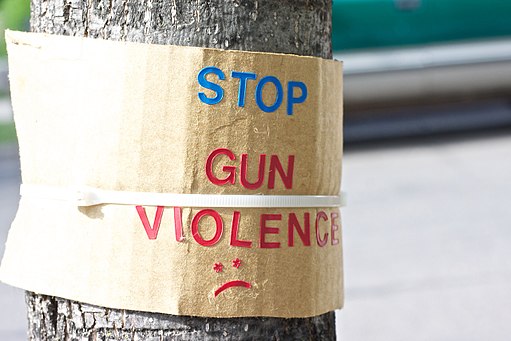
What is the single-most important obstacle preventing progress on reducing gun violence in the United States? Don't worry, I don't think there is one correct answer. Still, I'll propose one for you to consider in this brief post. I think a good candidate would be our tendency to focus on complete solutions to the neglect of partial solutions. That is, I think we are making a mistake by making our goal the complete eradication of all gun violence and discarding any measures that would likely reduce but not completely eliminate gun violence.
There is an extreme faction of the gun control side who insists that the only way to solve the problem of gun violence is to ban all guns. This will never happen, and all this message seems to do is to produce more support for the NRA and drive profits for gun manufacturers higher. But are they correct? Is the only way to solve the problem of gun violence to ban all guns? Maybe, but that would seem to depend on whether one's goal is to completely eliminate all gun violence or to achieve a meaningful reduction in gun violence. The former probably would require banning all guns in addition to many other measures this side would not like. The latter could probably be accomplished with limited restrictions on guns. In fact, I suspect it could be accomplished with very few additional restrictions on guns.
There is a similarly extreme faction of the gun rights side who opposes any restrictions on access to guns. Although their arguments vary, one of the most popular is that restricting access to guns will not solve the problem of gun violence. Are they correct? Again, it depends on whether one's goal is to completely eliminate all gun violence or to achieve a meaningful reduction in gun violence. I think this side is correct that restricting access to guns would not completely eliminate all gun violence, and I think they are wrong that restricting access to guns would not help to reduce gun violence.
I believe that our goal should be to bring about a meaningful reduction in gun violence and that we might consider both the number of incidents and the number of victims in each incident as suitable metrics to track. Restricting access to guns is one strategy to consider, but it need not be the only one. As long as the goal is meaningful reduction rather than total elimination, I think there are many things that would help that would not involve making it more difficult for most people to obtain guns. If the gun rights side wants to make it less likely that additional restrictions on guns will eventually be passed, they would do well to support as many of these other options as possible.
I also believe that we are making a mistake to demand that the only goal we will accept is the complete eradication of all gun violence. By focusing on that goal or allowing anyone else to shift the debate to focus on it, we are inviting only extreme solutions that are likely to be unpopular with almost everyone. Even if we equipped former President Obama with as many black helicopters as he needed to take away our guns, this would not get us all the way there. We'd probably also need to convert our schools into fortresses with multiple layers of security, armed guards, and highly intrusive surveillance procedures.
We can achieve meaningful reductions in gun violence if we are smart about how we go about doing it. I'd like to see Congress lift all the restrictions on federal funding for research on gun violence so that we could study the problem and come up with data-driven solutions. I'd also like to see us set realistic and measurable goals, track our progress to make sure that our efforts were working, and avoid unnecessarily draconian measures where possible. We can make a meaningful difference.